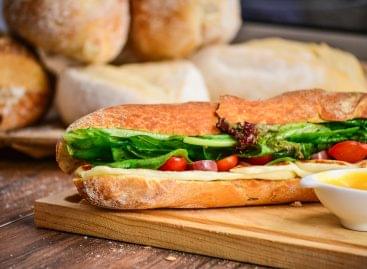4 guilt-free tips for kitchen decisions
What’s for dinner? This seemingly harmless question is asked a million times a day in Hungarian households – yet it often becomes the biggest mental burden for women. POLCZ’s expert offers 4 guilt-free tips on how to reduce the mental pressure of cooking without compromising the joy of meals or family harmony.
 What’s for dinner? It seems like an innocent question, yet it is one of the biggest mental burdens that many housewives carry on their shoulders every day. Everyday decisions, big and small, often put a huge strain on mental well-being without even realizing it – this phenomenon is called decision fatigue by psychologists. Behind this lies the “invisible” work: running a household, planning ahead and making decisions related to cooking, which makes everyday life more stressful.
What’s for dinner? It seems like an innocent question, yet it is one of the biggest mental burdens that many housewives carry on their shoulders every day. Everyday decisions, big and small, often put a huge strain on mental well-being without even realizing it – this phenomenon is called decision fatigue by psychologists. Behind this lies the “invisible” work: running a household, planning ahead and making decisions related to cooking, which makes everyday life more stressful.
“Cooking doesn’t have to be a mental burden. With proper awareness and a few easy-to-implement habits – like a well-chosen ready-made meal – the pressure associated with this otherwise enjoyable activity can be reduced,”
– highlights Éva Annamária Kertész, POLCZ expert.
1. Plan a fixed menu for 3-5 days in advance!
According to a 2024 survey by the Bureau of Labor Statistics, American women spend an average of 51 minutes a day preparing food. This burden also falls mostly on women in Hungary, which means that most people start doing the invisible work after a long day at work.
One of the most effective ways to avoid or make this easier is to plan your weekly menu. Monday’s lecsó can be combined with chicken breast the next day, Wednesday’s zucchini casserole can be frozen, and the minced meat can be used to make pasta sauce with tomatoes for Thursday. It is extremely beneficial that this also reduces leftovers, which is also a global problem.
2. Create a safety shelf in the pantry!
At the end of a tiring day full of decisions, it is completely understandable to want to put cooking on the back burner and choose relaxation and family activities instead. Since this is a departure from the usual routine, it often brings with it a sense of guilt. Creating a safety shelf is a great way to avoid this. Purchasing a few durable, health-conscious and quick-to-prepare meals can always save family dinners, so that free time remains quality.
“Ideally, we don’t make a difference if we don’t feel like or have time to cook. I want to live, not cook – this is not an anti-cooking statement, it just says that quality time with our family can be guilt-free. One way to do this is with a delicious, ready-to-eat meal in a jar, so you don’t have to stress about what’s on your plate,” said Éva Annamária Kertész, an expert at POLCZ.
3. You don’t have to do magic every day – you can have sandwich days too!
Planning a family menu is not a one-person task. Social media and television shows often suggest that the perfect housewife puts a three-course dinner on the table every day. This can create an unhealthy image of the role of cooking and eating together.
One of the most important steps to maintaining mental health is to let go of the pursuit of perfection and involve other family members in the process. A simple way to do this is to collect recipes that can be prepared in 10-20 minutes and that your family will love. And if you don’t finish everything, you can free up the next day’s cooking by eating the leftovers.
4. Spend the freed time with yourself and family programs!
If you have managed to reduce the invisible work involved in cooking – and therefore the mental load – you can free up even 15-30 minutes a day. In such cases, you should not forget that this should be spent on me-time or with your family instead of another housework.
Whether it’s a 15-minute walk, a leisurely coffee, or reading a chapter, the goal is the same: to regenerate without guilt in the fast-paced world.
Related news
Glass and paper are the most recycled
🎧 Hallgasd a cikket: Lejátszás Szünet Folytatás Leállítás Nyelv: Auto…
Read more >We waste 62 kg of food per capita every year
🎧 Hallgasd a cikket: Lejátszás Szünet Folytatás Leállítás Nyelv: Auto…
Read more >









